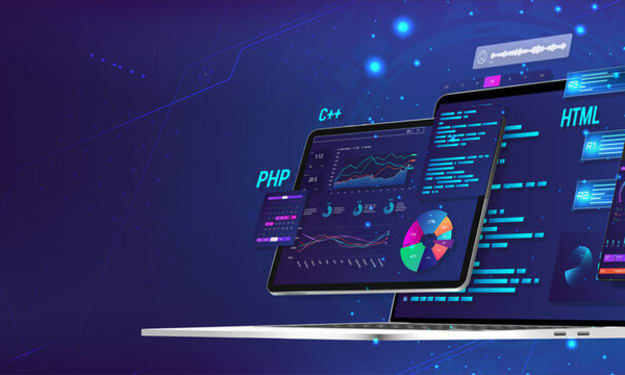Top Features to Look for in a DevOps Solutions Company
Choosing the Right Partner for Seamless DevOps Integration

In today's fast-paced digital landscape, DevOps has emerged as a pivotal approach to software development and deployment. DevOps practices streamline collaboration between development and operations teams, fostering faster delivery of applications and improved quality. As businesses increasingly adopt DevOps methodologies, the role of a DevOps solutions company becomes crucial. These companies specialize in providing tools, practices, and expertise to enable organizations to implement and optimize DevOps effectively. Here are the key features to consider when choosing a DevOps solutions company:
1. Comprehensive Toolchain
A reputable DevOps solutions company should offer a comprehensive toolchain that covers the entire software development lifecycle (SDLC). This includes tools for code building, testing, integration, deployment, monitoring, and feedback. Look for companies that support popular DevOps tools such as Jenkins, Git, Docker, Kubernetes, and Ansible, among others. The ability to integrate these tools seamlessly into your existing infrastructure is essential for maximizing efficiency and minimizing friction between teams.
2. Scalability and Flexibility
Business needs evolve over time, and your DevOps solutions should be able to scale accordingly. Whether you're a startup experiencing rapid growth or an enterprise managing complex deployments, the DevOps company should offer scalable solutions that can grow with your organization. Flexibility is also key, as different projects may require tailored approaches. A good DevOps partner will adapt their methodologies to suit your specific requirements while maintaining best practices.
3. Expertise and Experience
Evaluate the expertise and experience of the DevOps solutions company. Look for certifications, case studies, and client testimonials that demonstrate their proficiency in implementing DevOps strategies. Experienced teams can anticipate challenges, provide innovative solutions, and offer guidance based on industry best practices. They should also have a deep understanding of cloud platforms like AWS, Azure, and Google Cloud, enabling seamless integration and management of cloud-native applications.
4. Security and Compliance
Security is a critical concern in DevOps environments, especially with the increasing number of cyber threats. A reliable DevOps solutions company prioritizes security throughout the SDLC, from code development to deployment and beyond. They should implement robust security measures such as automated testing for vulnerabilities, continuous monitoring, and adherence to industry standards and regulatory requirements (e.g., GDPR, HIPAA). Transparency in security practices and proactive risk management are indicators of a trustworthy partner.
5. Collaborative Culture
DevOps is fundamentally about collaboration between development, operations, and other stakeholders. The DevOps solutions company should foster a collaborative culture within your organization, promoting communication and teamwork across teams. They should encourage knowledge sharing, continuous learning, and cross-functional training to break down silos and improve overall productivity. Look for companies that emphasize cultural transformation alongside technical implementation.
6. Automation Capabilities
Automation lies at the heart of DevOps, enabling rapid and reliable delivery of software updates. A proficient DevOps solutions company automates repetitive tasks across the SDLC, such as testing, deployment, and infrastructure provisioning. This reduces human error, accelerates time-to-market, and enhances overall efficiency. Assess their automation capabilities and the extent to which they can customize automation workflows to fit your specific requirements.
7. Monitoring and Analytics
Effective DevOps relies on continuous monitoring and analytics to track performance metrics, identify bottlenecks, and optimize processes. The DevOps solutions company should offer robust monitoring tools that provide real-time insights into application performance, infrastructure health, and user experience. This data-driven approach facilitates proactive problem-solving and ensures that applications meet SLAs and KPIs. Integration with monitoring solutions like Prometheus, Grafana, or Splunk can further enhance visibility and operational efficiency.
8. Support and Maintenance
After implementation, ongoing support and maintenance are crucial for the success of your DevOps initiatives. Choose a company that offers responsive support services, including troubleshooting, updates, and optimization. Service level agreements (SLAs) should guarantee timely resolution of issues to minimize downtime and impact on business operations. Additionally, proactive maintenance practices such as regular health checks and performance tuning can prevent potential problems before they escalate.
9. Cultural Alignment and Continuous Improvement
Aligning with a DevOps solutions company that shares your organizational values and goals is essential for long-term success. They should prioritize continuous improvement, advocating for iterative enhancements and staying abreast of industry trends and emerging technologies. A commitment to innovation ensures that your DevOps practices remain competitive and adaptable to future challenges. Regular reviews and feedback loops enable both parties to refine strategies and optimize outcomes collaboratively.
10. Cost-Effectiveness
Finally, while cost should not be the sole deciding factor, it is essential to consider the overall value proposition offered by the DevOps solutions company. Evaluate pricing structures, licensing models, and potential cost savings resulting from improved efficiency and reduced downtime. A transparent pricing policy and clear ROI metrics will help justify the investment in DevOps solutions.
Conclusion
Choosing the right DevOps solutions company is a strategic decision that can significantly impact your organization's agility, efficiency, and competitive edge. By prioritizing features such as comprehensive toolchains, scalability, security, collaboration, automation, monitoring, support, and cultural alignment, you can identify a partner capable of driving successful DevOps transformations. Remember to assess their expertise, experience, and commitment to continuous improvement to ensure a productive and enduring partnership in navigating the complexities of modern software development.
In summary, a well-chosen DevOps solutions company not only facilitates the adoption of DevOps practices but also empowers your organization to innovate, iterate, and deliver value consistently in today's dynamic business environment.
About the Creator
Enjoyed the story? Support the Creator.
Subscribe for free to receive all their stories in your feed. You could also pledge your support or give them a one-off tip, letting them know you appreciate their work.





Comments
There are no comments for this story
Be the first to respond and start the conversation.